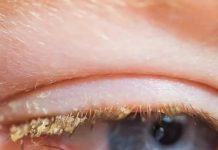If you find yourself frequently reaching for desserts or sweet snacks, it might be a sign that your body is accustomed to high sugar intake. Consuming sugar activates the brain’s reward system, causing temporary pleasure. Over time, this effect can create a dependency similar to addiction, making it hard to resist sugary foods. Gradually reducing your sugar intake can help reset your taste buds and reduce cravings.
1. Frequent Fatigue and Energy Crashes
Sugar provides quick bursts of energy but often leads to sharp drops in blood sugar levels afterward. These fluctuations can cause feelings of tiredness, irritability, or lack of focus during the day. Instead of relying on sweets for energy, try including balanced meals with complex carbohydrates, proteins, and healthy fats to maintain steady energy levels.

3. Unexplained Weight Gain
High sugar intake can easily lead to extra calories without providing necessary nutrients. Sugary foods and drinks increase insulin production, which promotes fat storage, especially around the abdomen. Cutting down on added sugars while increasing fiber and protein can help regulate appetite and maintain a healthy weight.
4. Breakouts and Skin Problems
A diet high in sugar can contribute to acne and premature aging. Sugar spikes insulin, which triggers hormonal changes and inflammation that affect the skin’s oil glands. Over time, excessive sugar damages collagen and elastin, leading to wrinkles and reduced skin elasticity. Staying hydrated and eating more fruits and vegetables can help improve skin clarity.
5. Mood Swings and Irritability
Blood sugar fluctuations caused by excessive sugar consumption can affect mood and concentration. After the initial “sugar high,” people often experience a “crash,” which may result in anxiety, irritability, or sadness. Stable meals rich in whole grains and protein help keep blood sugar balanced and mood more consistent throughout the day.
6. Tooth Decay and Oral Health Issues
Sugar feeds the harmful bacteria in the mouth, producing acid that erodes tooth enamel. This process can lead to cavities and gum disease if oral hygiene is poor. Brushing and flossing daily, combined with reducing sugary snacks and drinks, significantly lowers the risk of dental problems.
7. Frequent Illness or Slow Healing
Too much sugar can weaken the immune system by reducing the effectiveness of white blood cells. This makes the body more vulnerable to infections and slows down wound healing. Consuming nutrient-rich foods like leafy greens, berries, and lean proteins helps strengthen immunity and recovery.
8. Trouble Sleeping
High sugar consumption, especially in the evening, can interfere with sleep quality. It raises energy levels and can cause restlessness or frequent waking during the night. Choosing snacks like nuts, yogurt, or fruit before bed supports better rest without the sugar spikes.
9. Increased Thirst and Frequent Urination
Excessive sugar in the blood causes the kidneys to work harder to eliminate it, resulting in dehydration and constant thirst. This may be an early warning of high blood sugar levels or even insulin resistance. Drinking more water and limiting sugary drinks can help the body maintain hydration and balance.

10. Brain Fog and Poor Memory
High sugar intake has been linked to decreased mental clarity and slower cognitive performance. Over time, it can affect memory and learning ability due to inflammation and oxidative stress in the brain. Replacing sugary foods with omega-3 rich options like fish, nuts, and seeds supports better brain health.
Final Thoughts
Sugar is a natural part of many foods, but overconsumption can disrupt nearly every system in the body. By recognizing these warning signs early and choosing whole, unprocessed foods, you can restore balance, improve mood and energy, and protect your long-term health.

















